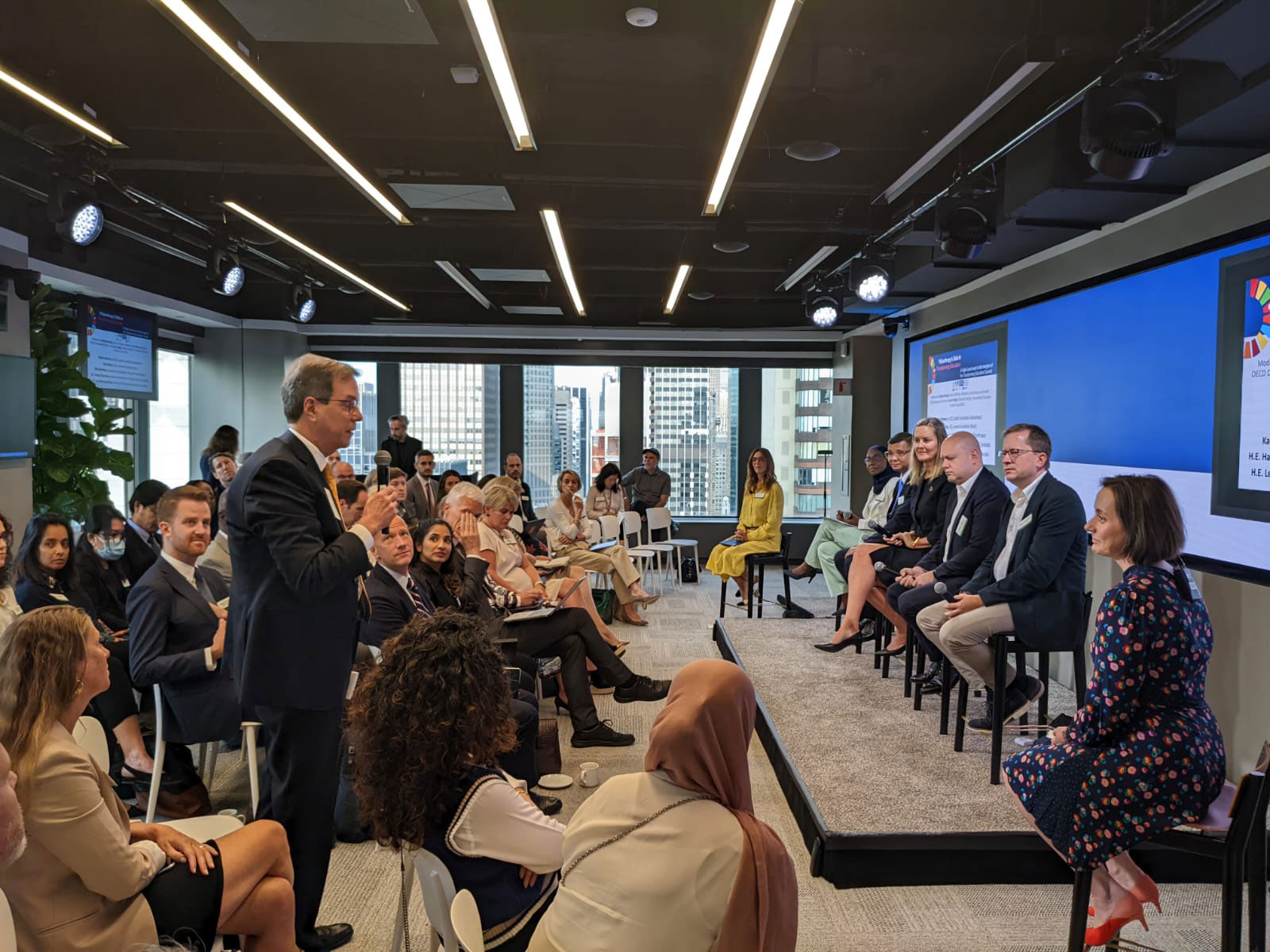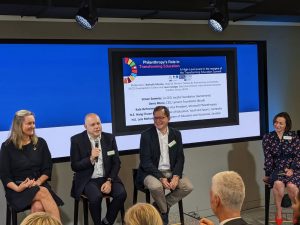I had the privilege this year of representing education philanthropy as a constituency to the UN High Level Forum Steering Committee for the Sustainable Development Goal 4 on education.
It has been an interesting time to be involved as an ‘outsider’, coming from a community that has mainly sat on the fence in the past.

The Transforming Education Summit in New York in September. Photo credit: Jo Kelcey
It was in this function that I attended the Transforming Education Summit (‘the TES’) in late September. For the first time ever, the UN hosted a Heads of State summit focused on education during the UN General Assembly to shine a spotlight on ‘the global education crisis’. Nine out of ten children in low-income countries cannot read a basic paragraph by age ten. The Covid-19 pandemic has caused further loss, further inequity within education systems, and prompted a host of calls to rethink what education is for and how it is delivered.

Denis Mizne speaks at the Transforming Education Summit in New York. Photo credit: Jo Kelcey
Many are saying that the TES marked a turning point to transform education systems. But did anyone fly out of New York City clear and confident on what they, as an individual, organisation or wider community of education actors, are going to do differently?
Philanthropy, at least, will do just that: 58 organisations in the philanthropy community signed a statement put forth by the OECD netFWD and IEFG, setting out what we commit to doing more of, if not differently. We have indeed committed to support local actors, enable a culture of evidence in education, and work in partnership to achieve more-than-the-sum-of-parts impact.
And we will start work now. We will start by establishing a culture of listening, a culture of asking questions rather than jumping to easy answers.
- What does ‘local’ mean? Is it realistic to expect an entire funding community to align behind the front lines with promises of funding, when the estimated capital at our disposal is miniscule compared to what is needed to move the needle on education? What support are we offering, to them and the ecosystem around them? What is our understanding of the political economy of development and education? How can we come to terms with different perspectives on education’s purpose and approach our own role with humility, especially as international foundations operating as guests in developing countries?
- We want to support a culture of evidence in education. Are we even equipped to become learning organisations, evaluating our own pilots and programmes and being honest about success and failure? Do we know how our vision of success merges with those of others? Do we have the tools to be able to see our work as one piece of a much larger puzzle? Are we ready to deal with the debate about what counts as evidence, while still moving ahead beyond piloting or debating one form of evidence over another?
- We commit to working better together, across siloes. But are we ready to see collaboration as more than co-funding and fighting amongst ourselves on whose priority gets picked for that purpose? Are we ready to see our diversity for all that it can be: that we do not all have to do everything, that we can see each other’s work as a complementary lever, that we will not ever be a cohesive rowing team pulling in the same direction because that is how it works in a complex system?
We have just started asking ourselves these questions and exploring how to address them.
I am proud that our education philanthropy community has spoken with one voice to commit our resources and support to driving the change that is needed to improve global education outcomes. I am proud that we did not put out a call to action but set out a series of principles that we would try to hold ourselves accountable to.
These are not simple things to put into practice, but we use platforms like the International Education Funders Group (IEFG) and OECD’s network for foundations that work on development (netFWD) to enable us to work through these challenges.
As we continue to transform ourselves, maybe we stand a chance to collectively transform education.
Simon Sommer is the co-CEO of the Jacobs Foundation.






Comments (0)